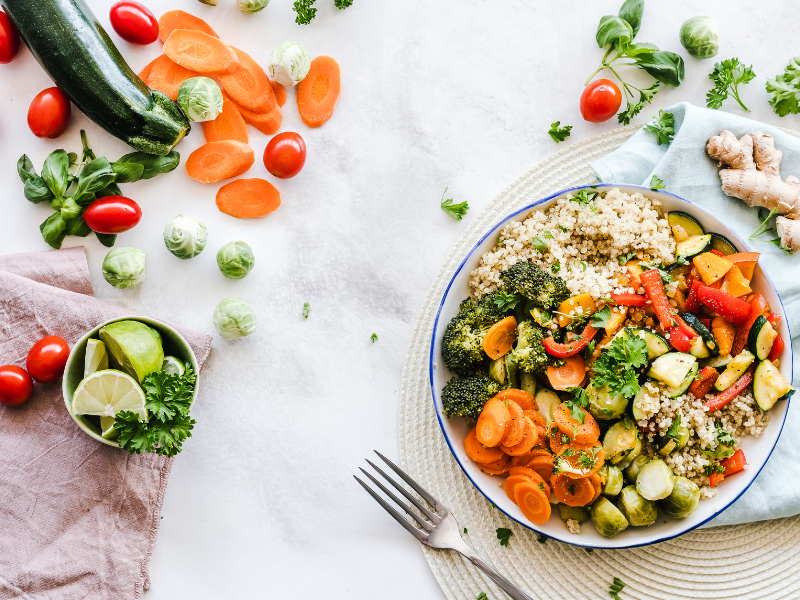
Digestive Enzymes and Their Importance in Protein Powder
At EnduraXcel, we believe that peak performance begins with optimal digestion. You can consume the cleanest, most protein-rich foods available—but without proper digestion, your body may never unlock their full potential. This is where digestive enzymes come in. They are the unsung heroes of nutrient absorption and athletic performance.
What Are Digestive Enzymes?
Digestive enzymes are specialized proteins that help break down the foods you eat into smaller, absorbable nutrients. They’re produced naturally in the salivary glands, stomach, pancreas, liver, and small intestine—but can also be supplemented to enhance digestion and absorption, especially when it comes to macronutrients like proteins, fats, and carbohydrates.
Each enzyme has a specific role. For example:
- Proteases break down proteins into amino acids.
- Lipases target fats, converting them into usable fatty acids and glycerol.
- Amylases and maltase work on carbohydrates, converting them into simple sugars like glucose for energy.
At EnduraXcel, we formulate our products to support your body’s enzyme activity—helping you get the most from every scoop of protein.
Why Digestive Enzymes Matter
Your body does produce enzymes naturally, but factors like aging, stress, processed food, and intense training can reduce enzyme production. Without sufficient enzymes:
- You may struggle to digest high-protein meals.
- Your cells may not get the amino acids they need for muscle recovery and growth.
- You may experience symptoms like bloating, gas, cramps, or fatigue—even if your diet is clean.
That’s why supplementing with digestive enzymes—especially in your protein powder—can make all the difference in absorption, recovery, and performance.
Enzymes and Protein Digestion in Athletes
Protein digestion is a complex process that starts in the stomach and finishes in the small intestine. Whey protein, known for its fast absorption, has a narrow window (about 90 minutes) to be broken down and absorbed.
However, factors like genetic limitations, suboptimal diets, stress, or excessive heat can impair your body’s ability to break down whey protein. That means even if you’re consuming 1g of protein per pound of body weight (the standard guideline for athletes), your body might not actually absorb and utilize all of it.
Including protease enzymes in your supplement can change that. Proteases help break down large protein molecules into peptides and amino acids your muscles can immediately use for recovery and hypertrophy.
Benefits of Digestive Enzymes in Protein Powders
At EnduraXcel, we carefully formulate our protein powders with active digestive enzymes to support:
- Faster protein breakdown for quicker absorption.
- Reduced digestive discomfort like bloating or gas.
- Better nutrient utilization, meaning your body absorbs more of what you eat.
- Improved muscle recovery and growth, especially after intense workouts.
We don’t just add random enzymes for the sake of it. Each enzyme is included in precise amounts, optimized for activity at different pH levels across the digestive tract—acidic (stomach), neutral, and alkaline (small intestine).
Common Digestive Enzymes in Our Formulas
Here’s a quick look at some of the key enzymes we use in our products:
- Protease – Breaks down protein into amino acids to support muscle repair.
- Lipase – Breaks down fats into fatty acids and glycerol for energy and recovery.
- Amylase – Breaks down starches into simple sugars like glucose.
- Maltase – Further breaks down complex carbs into glucose.
- Lactase – Helps digest lactose (especially important for those sensitive to dairy).
Optimizing Your Protein Intake
To maximize the benefits of your protein:
- Avoid drinking water in excess during meals, which can dilute stomach acid.
- Skip milk with antacids, as it can neutralize stomach acidity and impair protein digestion.
- Choose a protein powder with digestive enzymes, especially multi-phase proteases that work across all stages of digestion.
The EnduraXcel Edge
Every EnduraXcel product is built to support the athlete's journey—from training to recovery. Our enzyme-fortified protein blends ensure that the nutrients you consume are fully utilized, supporting your performance goals with every serving.
Why settle for just taking protein, when you can actually absorb and use it? Choose EnduraXcel—and fuel your body like it deserves.
